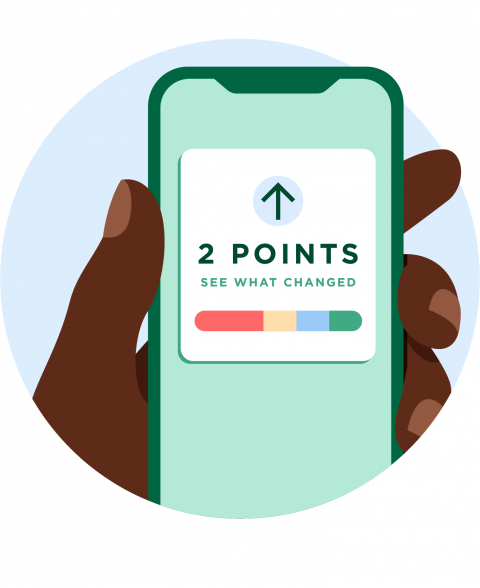A Simple ‘Recipe’ for Managing Your Credit Score

Many or all of the products featured here are from our partners who compensate us. This influences which products we write about and where and how the product appears on a page. However, this does not influence our evaluations. Our opinions are our own. Here is a list of our partners and here's how we make money.
The way your credit score works can seem mysterious, with several factors intertwining in complex ways.
But following a simple recipe can help you build and maintain a good credit score:
Pay everything on time.
Use less than 30% of your available credit.
Keep an eye on everything else.
This formula focuses your energy on the two biggest factors that influence your score: payment history and credit utilization (how much of your limits you use). Those two things account for the majority of your credit score, so managing them closely pays off.
The rest — such as the types of credit you have, how often you apply for credit and the loan balances you carry — not only have less impact, they can be harder to influence.

Let’s break it down:
Pay everything on time
This is the big one — paying all your bills (not just credit cards) on time every month is crucial for a good credit score.
Both FICO and VantageScore, the two major credit scoring companies, put the most importance on timely payments. A payment that is 30 or more days late can damage your score immediately, causing it to drop by as much as 100 points. You may also be socked with a late fee by your lender or credit card issuer.
Simple tactics can help you pay on time and avoid credit score damage. Set up automatic payments on your bills. Or, if you’re not a fan of automatic payments or you’re worried about overdrawing your account, set a reminder to pay, says Elaina Johannessen, program director at LSS Financial Counseling, a Minnesota nonprofit.
Setting a reminder several days before your due date gives you time to transfer funds to your creditors.
Use less than 30% of your available credit
The second-biggest factor influencing your score is how much of your available credit you’re using. This mainly applies to credit cards.
Credit usage matters for each card you have and for all of your cards together. To keep things simple, don’t use more than 30% of your credit limit on any card. That will take care of the overall credit usage, too.
While 30% is a good rule of thumb, the lower your spending on each card, the better it is for your score. Ideally, you want to keep it less than 10%.
You can take several approaches to keep credit usage low: If you have to make a big purchase, spread it out over multiple cards. If your card issuers let you set alerts, ask to be notified if you’re approaching the 30% mark so you can switch to another card or make a payment. And if you can afford to, pay your balance off in small chunks during your billing cycle instead of waiting for the due date — that keeps your credit utilization consistently low instead of letting it build to a peak.

Keep an eye on everything else
Once you have the big two covered, be aware of the other scoring factors, but don’t focus on actively managing them. Time and experience with different types of credit will automatically benefit your score.
Here’s what else influences your score:
Types of credit accounts: It’s good to have a mix of installment loans and credit cards. Simply open new credit as needed for your financial goals, and over time you’ll develop a mix.
Average age of your accounts: Your score benefits from having accounts showing a long record of responsible use. Keep cards open unless there’s a good reason to close one, like a high annual fee.
Recent credit applications: Aim to space out applications for credit cards by about six months, because seeking a lot of credit at once is a red flag. The exception: Mortgage, student loan and car loan applications clustered within a two-week window count as only one credit check, because it’s clear you’re rate-shopping.
Total balances and debt: As long as you’re not stacking up too much debt for your income, just let time take care of this one. A record of steadily paying down balances will benefit your score.
It’s wise to check your credit reports periodically for errors and dispute any you find, Johannessen says. That’s because your credit scores come from that data.
“FICO scores only consider information found in a credit report,” says Tommy Lee, senior director at FICO. The same holds true with its competitor, VantageScore.
Consumers are entitled to a free copy of your credit report weekly through from each of the three bureaus: Experian, Equifax and TransUnion.
Also make a habit of checking your credit score regularly, because looking at your own score does no harm and can alert you to problems. Bonus: It also lets you see your progress as you follow this credit scoring recipe.
Watch to learn more about bettering your score


